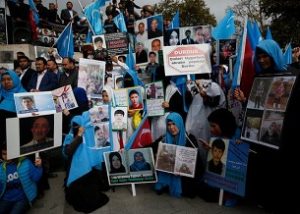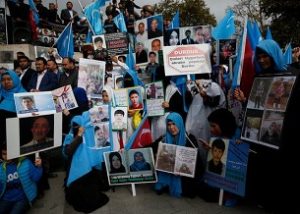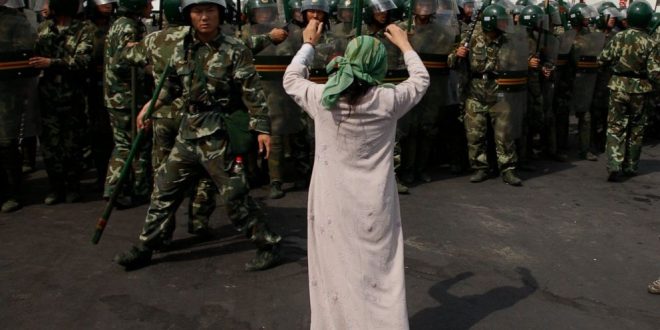20 December, 2019
By SJA Jafri + Agencies
 BEIJING/ KUALA LUMPUR: Muslim countries should initiate a boycott on Chinese products, an influential Malaysian preacher has said, calling for an end to the detention of ethnic Uighurs, at least a million of whom are reportedly held against their will in China’s Xinjiang province.
BEIJING/ KUALA LUMPUR: Muslim countries should initiate a boycott on Chinese products, an influential Malaysian preacher has said, calling for an end to the detention of ethnic Uighurs, at least a million of whom are reportedly held against their will in China’s Xinjiang province.
Mohd Asri bin Zainul Abidin, the top Islamic jurist in Malaysia’s Perlis state, said political and religious leaders from the Muslim world should exert more economic and diplomatic pressure on Beijing for its treatment of the minority Muslim group living in its westernmost province.
“We need to go to the extent of boycotting China’s products. They know the strength of our purchasing power,” Mohd Asri told media at the sidelines of a summit of Muslim-majority countries in the Malaysian capital, Kuala Lumpur.
 “The decision should be taken at the highest level of Muslim countries and the ulama (religious scholars and guardians),” to address the Uighur issue, said Mohd Asri, who earlier told summit participants that the almost two billion Muslims should flex their economic muscle to influence policies worldwide.
“The decision should be taken at the highest level of Muslim countries and the ulama (religious scholars and guardians),” to address the Uighur issue, said Mohd Asri, who earlier told summit participants that the almost two billion Muslims should flex their economic muscle to influence policies worldwide.
“We should do something, because they (Uighurs) are our brothers and sisters,” he added.
Most member states of the Organization of Islamic Cooperation (OIC) have been the target of criticism by Uighur rights advocates for their “silence” on the Uighur issue.
In July, more than 20 countries voted for the first time on a resolution before the United Nations Human Rights Council calling for an end to the mass detentions of Uighurs in Xinjiang but 14 OIC member states joined 23 other countries in siding with China, praising its “remarkable achievements in the field of human rights.”
 In November, Dolkun Isa, a senior leader of exiled Uighurs in Europe, said there is no excuse for the world’s silence, and also called on countries to cut trade links with Beijing.
In November, Dolkun Isa, a senior leader of exiled Uighurs in Europe, said there is no excuse for the world’s silence, and also called on countries to cut trade links with Beijing.
On Tuesday, Charles Santiago, a member of the Malaysian Parliament for the ruling coalition, had urged the leaders at the Kuala Lumpur summit to raise the Uighur issue.
According to a United Nations report, there are an estimated one million Uighurs detained in Xinjiang.
However, Randall Schriver, the top US defence official in charge with Asia, saod in May that the figure was “likely closer to three million citizens” – representing almost a third of the total 10 million Uighur population.
Activists and human rights groups have also accused China of trying to erase Uighur language, culture and religion, forcing them to give up Muslim religious traditions and beliefs, such as the use of veil among women and the wearing of facial hair among men. Muslims have also been reportedly banned from fasting during Ramadan.
 China has denied that Uighurs are being held against their will. Beijing has described the facilities as “training centers” or “re-education” camps aimed at countering the “terrorist threat” and “extremism” in Xinjiang. Beijing also denies any mistreatment of Uighurs.
China has denied that Uighurs are being held against their will. Beijing has described the facilities as “training centers” or “re-education” camps aimed at countering the “terrorist threat” and “extremism” in Xinjiang. Beijing also denies any mistreatment of Uighurs.
Muhamed Ljevakovic, a speaker at the Kuala Lumpur summit from Bosnia Herzegovina, said most of the participating countries are “friends of China”, so there is “no chance” to confront Beijing more forcefully on the Uighur issue.
“Friends are supposed to tell each other the truth, and friends are supposed to tell them that what is going on right now is not good for China, and of course not good for the Uighurs but people are afraid to speak their minds.”
 Pressmediaofindia
Pressmediaofindia




